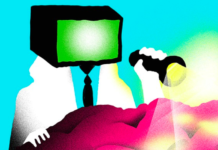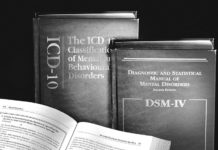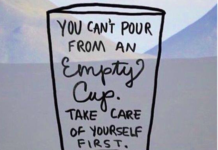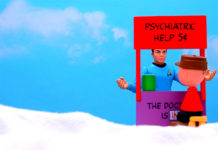The Chemical Imbalance Theory of Mental Disorders
In this video for AdvancingMentalHealth.org, Jeff Baker provides a detailed overview and critique of the chemical imbalance theory of mental illness.
What Is “Normal” Anyway?
From Scientific American: Although "normal" technically means average or typical, both researchers and the general public often view normality as a standard we should all...
Study Explores Meanings of Bipolar Disorder to Those Diagnosed
The narratives about Bipolar Disorder promoted by drug companies may influence how those diagnosed understand themselves.
Race and Class Affect Teacher Perceptions of ADHD Medication Use
Study uncovers teachers’ attitudes surrounding ADHD medication use and examines the influence of race and social class on teacher beliefs.
A Case Against Antidepressants
From Newsroom: University of Auckland researchers make a case against the chemical imbalance theory of mental illness, arguing that biological explanations and treatments for emotional...
Susie Orbach’s Guide to Books to Understand Yourself
In this piece for The Guardian, Susie Orbach argues that we should not turn to the DSM to understand ourselves, but instead to the work of...
Mental Illness Weaponry and Shrink Hypocrisy
In this piece for CounterPunch, Bruce Levine critiques the pervasive hypocrisy among U.S. mental health professionals, who on one hand claim they hope to abolish the...
When Algorithms Are Running the Asylum
From Neo.life: The emerging discipline of computational psychiatry, which aims to use machine-learning algorithms to recognize patterns of mental distress and identify treatments that may be...
How Big Pharma Infiltrated the Boston Museum of Science
From CounterPunch: Last spring, an exhibit promoting mainstream mental health ideologies debuted at the Boston Museum of Science. The exhibit was funded by NAMI and...
It Doesn’t Need to Be Like This
In this piece for The British Psychological Society, clinical psychologist Dr. Penny Priest reports from the launch of the 'Power, Threat, Meaning' framework on January...
Is Everything Johann Hari Knows About Depression Wrong?
In this piece for The Guardian, Dean Burnett critiques Johann Hari's new book challenging what we know about depression. According to Burnett, many of the points...
All Mental Disorders Are Brain Disorders…Not
In this blog post, Eiko Fried disputes the pervasive assumption that the most common psychiatric diagnoses are biologically based brain disorders, asserting that the...
Introducing the Power Threat Meaning Framework
From The British Psychological Society: A group of senior psychologists and prominent service user campaigners has published a report offering an alternative framework to understand emotional distress.
"The Framework...
Psychosocial Adversities Should be Included in Diagnosis
Proposal to include psychosocial adversities that impact mental health in ICD and DSM diagnoses.
The Demoralized Mind
From openDemocracy: The distress, boredom, and disillusionment so commonly diagnosed as depression may actually result from the demoralization people experience in consumerist cultures. Large-scale cultural change,...
Links Between Benefits and Mental Ill-Health Could be Recorded
From Vox Political: In a new proposal in the medical journal The Lancet, Kate Allsopp and Peter Kinderman have called for mental health professionals to record psychosocial...
How Psychology Undermines Feminist Activism
In this piece for the Feminist Current, Tove Happonen argues that the therapy model pathologizes women's responses to systemic injustice, aiming to change their emotional reactions...
Top Ten Things You May Not Know About the ICD-10
In this piece for Psychology Today, Dr. Jonathan D. Raskin lists 10 facts about the current version of the International Classification of Diseases, which is...
Mad Pride: Making a Truce With the Voices in Your Head
In this piece for Vice, Tess McClure describes New Zealand's Mad Pride movement, a movement that seeks to destigmatize, normalize, and celebrate experiences of voice-hearing...
Drop the Stigmatizing Term “Schizophrenia”
Dr. Brian Koehler is petitioning the American Psychiatric Association and the World Health Organization to drop the stigmatizing term "schizophrenia." Click here to sign the...
Badiou, the Event, and Psychiatry, Part 2
In the second part of a two-part series on philosophy and psychiatry, Vincenzo Di Nicola describes an alternative model of psychiatry that rejects some of...
Anyone Can Be Trained to Hallucinate
From Flipboard: In a recent study on auditory hallucinations, all participants — not just those who had been diagnosed with psychosis — experienced conditioned hallucinations. The study...
Depathologize Shyness Now!
In this piece for Medium, Jenny Karlsson makes the case for depathologizing shyness by removing "social anxiety disorder" from the DSM.
"Shyness, under the label of,...
Children Diagnosed with ADHD Younger are More Likely to get Multiple Medications
New research demonstrates that children diagnosed with ADHD at younger ages are more likely than those diagnosed later to receive multiple medications within five years of their diagnosis.
Beyond Critique: Psychologists Discuss Diagnostic Alternatives
The Journal of Humanistic Psychology compiles diverse research offering diagnostic alternatives toward a paradigm shift in mental health care.

































